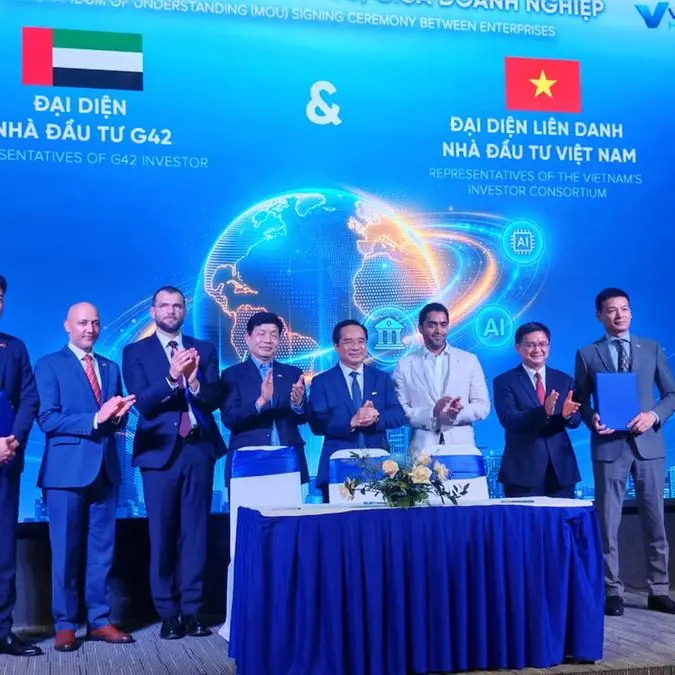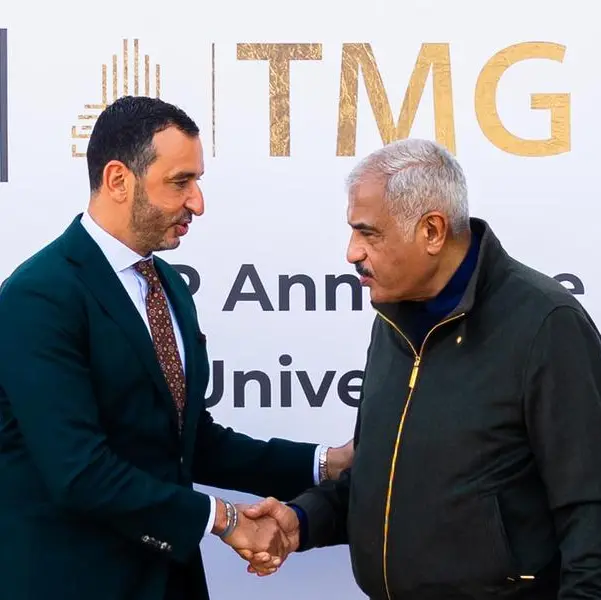QNI is the first Global Index to rank the Quality of Nationalities
Among 161 nationalities listed in the index, Qatar occupies (60th) place, followed by the UAE (62nd), Kuwait (63rd), Saudi Arabia (68th), Oman (73rd), and Bahrain (75th)
The average value of GCC nationalities on the QNI General Ranking (35.1%) is substantially higher than the Middle Eastern average (26.5%)
Qatar and the UAE emerged as the most attractive employment destinations in the MENA region
Henley & Partners, the global leader in residence and citizenship planning, today unveiled the first-ever index to objectively rank the quality of nationalities worldwide. The Henley & Partners - Kochenov Quality of Nationality Index (QNI) explores both internal factors (such as the scale of the economy, human development, and peace and stability) and external factors (including visa-free travel and the ability to settle and work abroad without cumbersome formalities) that make one nationality better than another in terms of legal status in which to develop your talents and business.
Commenting on the recent index launch, Professor Dr. Dimitry Kochenov, a co-author of the QNI and a leading constitutional law professor, said: "The key premise of the index is that it's possible to compare the relative worth of nationalities - as opposed to, simply, countries. Everyone has a nationality of one or more states and these states differ to a great degree. Just as with the states, the nationalities themselves differ too. Importantly, there is no direct correlation between the power of the state and the quality of its nationality. Nationality plays a significant part in determining our opportunities and aspirations, and the QNI allows us, for the first time, to analyse this objectively."
A unique measurement tool
The QNI is not a perception index. It uses an array of objective sources to gauge the opportunities and limitations that each nationality gives its owners. Data from the World Bank, the International Air Transport Association, the Institute for Economics and Peace and Henley & Partners' own research blends into this unique, objective and transparent measurement tool that divides the nationalities of the world into four tiers based on quality, from Very High to Low, giving a clear picture of the standing of each nationality at a glance.
Christian H. Kälin, a co-author of the QNI and Chairman of Henley & Partners, said: "The QNI is relevant to both individuals who are interested in mobility, understanding the possibilities and the limitations of their nationality, and governments who are focused on improving the local, regional and global opportunities inherent in their passports."
What is measured and how?
To calculate the internal value of each nationality, which comprises 40% of the score, the QNI takes into account three sub-elements:
The economic strength of the country, measured by Gross Domestic Product (GDP): 15%
The scale of human development, as expressed by the United Nations Human Development Index (HDI): 15%
The level of peace and stability, according to the Global Peace Index (GPI): 10%
The external value of nationality accounts for 60% of the ranking score. There are four sub-elements:
- The diversity of settlement freedom: 15%
- The weight of settlement freedom: 15%
- The diversity of travel freedom: 15%
- The weight of travel freedom: 15%
The Nationalities are categorized in four tiers:
- Very high quality: nationalities with a value of 50.0% and above
- High quality: nationalities with a value of between 35.0% and 49.9%
- Medium quality: nationalities with a value of between 20.0% and 34.9%
- Low quality: nationalities with a value of 19.9% and less
The QNI consistently ranks the German nationality the highest in the world over the last five years with a score of 83.1%. The nationality of the Democratic Republic of Congo sits at the bottom of the index on 14.3%.
The QNI also includes nationalities within the MENA region. According to the ranking, the average value of GCC nationalities is 35.1%, which is substantially higher than the Middle Eastern average of 26.5%. GCC nationalities are also categorized into a high to medium quality of nationality. The nationalities of the GCC belong to the lower range of the high-quality tier (Qatar, United Arab Emirates, and Kuwait) and the higher range of the medium-quality tier (Saudi Arabia, Oman, and Bahrain) of the QNI General Ranking.
Regional and Country Results
Europe and North America outperform the QNI's global mean of 38.7% by a wide margin, with means of 62.8% and 58.1% respectively. The EU nationalities derive particular value from their unmatched Settlement Freedom, thereby boosting the continent's Overall Value
Within the EU, the older EU Member States' nationalities have very stable levels of quality. Newer Member States - particularly Bulgaria, Romania and Croatia - have greatly benefitted from EU integration and are likely to continue to improve
The nationalities of the US and Canada benefit primarily from very strong Internal Value and spectacular visa-free travel, but lie in the lower ranks of the Very High quality nationalities along with countries like Japan, Singapore and South Korea which cannot compete with the superb Settlement Freedom of EU nationalities, but perform well in all other aspects
South American nationalities have experienced a substantial increase in value due to significant progress made in the area of Settlement Freedom and the mutual gradual removal of the barriers related to settlement and work
None of the nationalities of the former Soviet Union are of Very High value and while the Russian nationality experiences a gradual increase in quality due to the constant conclusion of new visa-free agreements, the recent shift in Russian policy vis-à-vis the nationalities of the Commonwealth of Independent States makes it more difficult for CIS nationals to settle in Russia, and explains a general decrease in the quality of nationalities with important ties to Moscow
Destabilization in North Africa and the Middle East has adversely affected the quality of the nationalities in these regions. Libya, Bahrain and Oman experienced major blows to the value of their nationalities, and Syria has, unsurprisingly, been in free fall
Central America and the Caribbean generally score lower on the majority of sub-elements and the lack of significant Settlement Freedom prevents even the top-ranked nationalities from matching the European, North American and some of the East Asian nationalities
The Asian and Pacific regions sit quite far below the global mean. However, Asian nationalities occupy positions across the entire spectrum of the QNI, from the Very High Quality tier (for example Japan, New Zealand, and Singapore) to Low Quality (Myanmar, Pakistan, and Afghanistan)
The Henley & Partners - Kochenov Quality of Nationality Index, covers the five years between 2011 and 2015. The index will be updated annually to ensure a current picture of the quality of world nationalities is readily available at any moment in time, illuminating medium to long-term trends in nationalities' development.
-Ends-
About the QNI creators
Professor Dr Dimitry Kochenov holds a Chair in EU Constitutional Law at the University of Groningen, The Netherlands, is a Visiting Professor of the College of Europe and is the Chairman of the Investment Migration Council. During the 2015-2016 academic year Professor Kochenov is the Martin and Kathleen Crane Fellow in Law and Public Affairs at the Woodrow Wilson School at Princeton University. He has published widely on different aspects of comparative and European citizenship law, and migration regulation, and consults governments and international organizations on EU Constitutional Law and citizenship issues.
Christian H. Kälin, TEP, IMCM, is the Chairman of Henley & Partners and one of the world's leading specialists on investment migration law and policy. After completing Zurich Business School and his training at a Swiss private bank, he lived and studied for many years in France, the US, New Zealand and Switzerland. A holder of a cum laude Master's degree in law from the University of Zurich, he is a frequent writer and speaker on residence and citizenship-by-investment and advises key private clients as well as governments in those areas. He is the author of the Global Residence and Citizenship Handbook, editor of the Switzerland Business & Investment Handbook as well as numerous other publications.
About Henley & Partners
Henley & Partners is the global leader in residence and citizenship planning. Each year, hundreds of wealthy individuals, families and their advisors rely on its expertise and experience in this area. The firm's highly qualified professionals work together as one team in over 25 offices worldwide.
The concept of residence and citizenship planning was created by Henley & Partners in the 1990s. As globalization has expanded, residence and citizenship have become topics of significant interest among the increasing number of internationally mobile entrepreneurs and investors whom they proudly serve every day.
The firm also runs a leading government advisory practice which has raised more than USD 5 billion in foreign direct investment. The firm has been involved in strategic consulting and the design, set-up and operation of the world's most successful residence and citizenship programs.
henleyglobal.com
Media Contacts
For further information and interview requests please contact:
Weber Shandwick MENA
+971 4 445 4222
Taylyn Bush: TBush@webershandwick.com
Carine Arif: CArif@webershandwick.com
© Press Release 2016



















